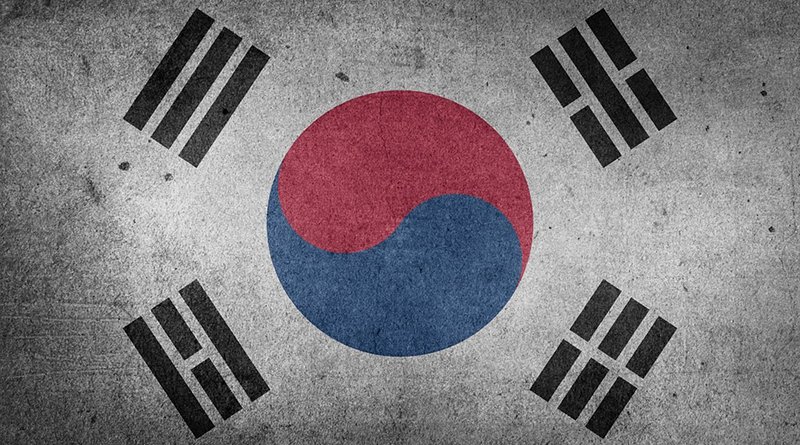Strengthening Of US-South Korea Ties Has Consequences For Region – Analysis
The US and South Korea have settled the ongoing dispute about the scope of their bilateral security relationship. This news is good for both countries, with a strong bilateral agreement specifically designed for this Northeast Asian country approved by the South Korean parliament on Tuesday. Lawmakers passed the six-year Special Measures Agreement by 133 votes to 11 and it came into effect the following day. Seoul’s neighbors are watching with interest, as this is a key moment for security in this corner of the world.
Cost-sharing has been a major burden between the two countries over recent years. Under the Trump administration, no deal was forthcoming because of the transactional nature of the negotiations. South Korea was left feeling abused by the US and the country’s leaders resisted Washington’s pressure.
Under President Joe Biden, however, there was an immediate breakthrough and in March a deal was agreed in principle to end the logjam. South Korea’s National Assembly this week had the final say on the Special Measures Agreement, as required by law.
It is important to understand the domestic setting for South Korea’s decision-making on its relationship with the US. President Moon Jae-in is under intense pressure from many different groups regarding the American deal. The country’s diverse political scene features discussions on the history and relations of the country with its neighbors, especially North Korea, China and Russia. Japan is a separate case because of the uneven nature of Tokyo’s relationship with Seoul due to lingering tensions over their perceptions of each other.
Because of these domestic viewpoints, there are deep diplomatic differences between Biden and Moon. The local interpretation is that the Biden administration wants Moon to back away from Seoul’s “peace-oriented policy” toward North Korea. No doubt Kim Jong Un’s country is in trouble, but — with Pyongyang’s military capability — North Korea continues to present a perennial threat to the entire neighborhood.
Finally, part of South Korean society also rejects America’s request for the country to take a more active military role in the region. Some see this development as evidence of America attempting to militarize South Korea and use it as a proxy army. This sentiment is especially high during US-led multilateral military exercises that also involve Seoul.
For another segment of the South Korean political spectrum, China is the major security issue and working with the Americans is paramount for them. Moon’s support for the Terminal High Altitude Area Defense missile defense system deployed at Seongju since 2017, which is now within the context of the Special Measures Agreement, is a problem for South Korea’s relationship with China. Beijing objects to this missile defense deployment and threatens Seoul with economic penalties, in addition to Chinese aircraft penetrating the country’s boundaries.
At the June summit between Biden and Moon, it was decided that Seoul would become more active not in the Quadrilateral Security Dialogue concept, but as part of the Indo-Pacific security architecture. Parts of the South Korean public are quite upset by this development. But the growing alliance specifically designed for South Korea is emerging. Seoul last month took responsibility for space, electronic, information and cyberwarfare at a meeting of the newly established South Korea-US Information and Communication Technology Cooperation Committee.
For Northeast Asia, all of this armament policy discussion and interaction is forcing China’s hand. Beijing is placing restrictions on transit in the South China Sea for Quad members and is threatening to expand such bans. South Korea sees Japan’s participation in the Quad as inviting more Chinese ire in the region and thereby seriously unbalancing South Korean foreign policy. In response, there is talk of possible hypersonic weapon deployment among a number of Indo-Pacific countries. The placement of these missiles is part of an emerging line or string of high-tech weaponry for great power competition in the Western Pacific.
Finally, Russia is playing an interesting role in Northeast Asia, focusing on its new industrial and commercial developments on the Kuril Islands, which are angering Tokyo, while also engaging South Korea on nuclear talks with Pyongyang. Moscow sees an opportunity in playing the diplomat, while also using its stick by raising historical grievances. This is not a new tactic, but the timing is key amid the new developments in the US-South Korea security relationship. Exploiting divisions in Korean society is a desired outcome for Russia. Moscow is biding its time.
Overall, South Korea’s approval of the new six-year Special Measures Agreement with the US is a positive step, but it continues to perplex part of the country’s vibrant society. A very common complaint among those who do not trust America is that Washington is only using Seoul to advance its selfish interests. Moon is up for re-election next year and the domestic scene is likely to get heated. It is possible that pushing Seoul too hard now may have consequences for various parties later.

